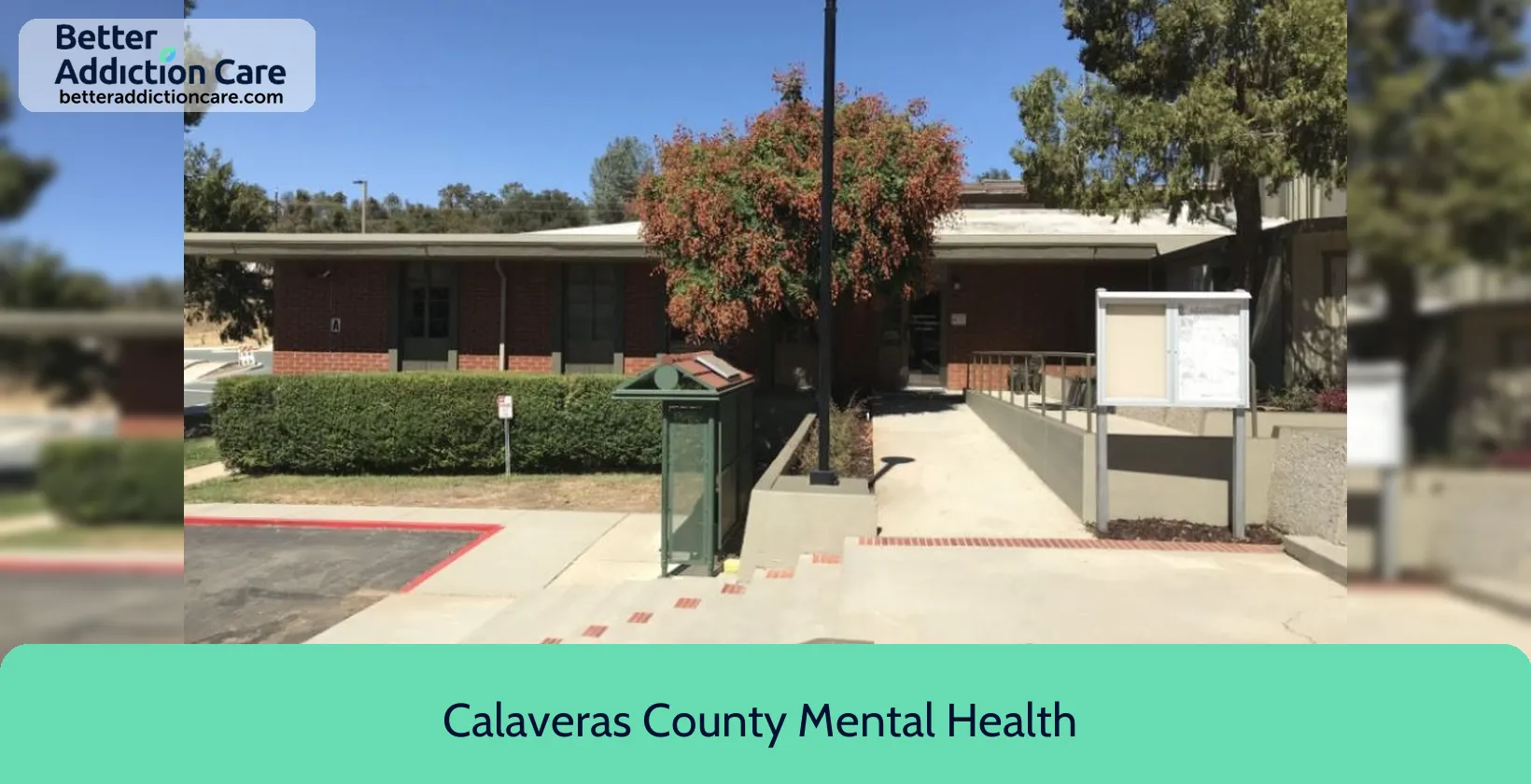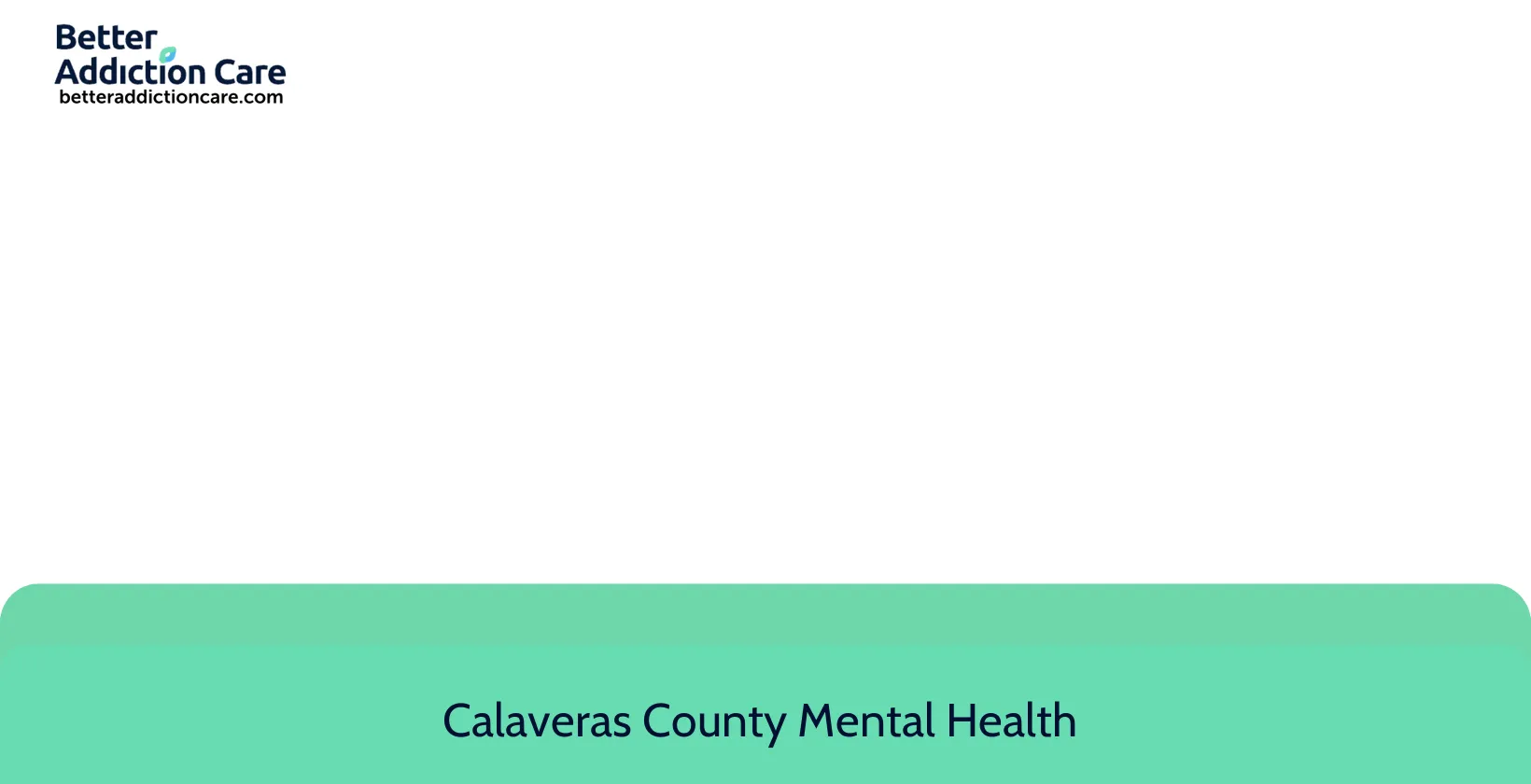Calaveras County Mental Health - Mountain Ranch Road
Overview
Calaveras County Mental Health - Mountain Ranch Road is a mental health treatment center for people seeking treatment near Calaveras County. As part of their treatment modalities for recovery, Calaveras County Mental Health - Mountain Ranch Road provides family counseling, individual psychotherapy, and cognitive behavioral therapy during treatment. Calaveras County Mental Health - Mountain Ranch Road is located in San Andreas, California, accepting community mental health block grants for treatment.
Calaveras County Mental Health - Mountain Ranch Road at a Glance
Payment Options
- Community Mental Health Block Grants
- Medicaid
- Cash or self-payment
Assessments
- Comprehensive mental health assessment
Age Groups
- Adults
- Children/adolescents
- Young adults
Operation
- State government
Highlights About Calaveras County Mental Health - Mountain Ranch Road
6.65/10
With an overall rating of 6.65/10, this facility has following balanced range of services. Alcohol Rehabilitation: 8.00/10, Drug Rehab and Detox: 6.00/10, Insurance and Payments: 6.00/10, Treatment Options: 6.61/10.-
Alcohol Rehabilitation 8.00
-
Treatment Options 6.61
-
Drug Rehab and Detox 6.00
-
Insurance and Payments 6.00
Treatment At Calaveras County Mental Health - Mountain Ranch Road
Treatment Conditions
- Mental health treatment
Care Levels
- Aftercare
- Outpatient
Treatment Modalities
- Family counseling
- Individual psychotherapy
- Cognitive Behavioral Therapy
- Group counseling
- Marital/couples counseling
Ancillary Services
Languages
- Sign language services for the deaf and hard of hearing
- Spanish
Special Programs
- Children/adolescents with serious emotional disturbance (SED)
- Clients who have experienced trauma
- Persons 18 and older with serious mental illness (SMI)
Contact Information
Read our Most Recent Article About Drug Addiction
DISCLAIMER: The facility name, logo and brand are the property and registered trademarks of Calaveras County Mental Health - Mountain Ranch Road, and are being used for identification and informational purposes only. Use of these names, logos and brands shall not imply endorsement. BetterAddictionCare.com is not affiliated with or sponsored by Calaveras County Mental Health - Mountain Ranch Road.










